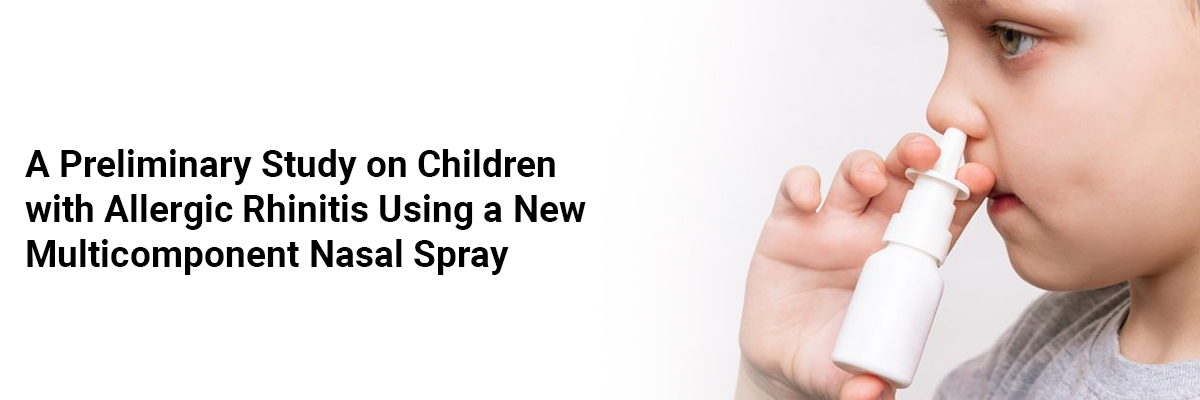
 IJCP Editorial Team
IJCP Editorial Team
A Preliminary Study on Children with Allergic Rhinitis Using a New Multicomponent Nasal Spray
A recent preliminary, randomized, and controlled study investigated the effectiveness and safety of a novel multicomponent nasal spray as an add-on treatment for allergic rhinitis (AR) in children. The nasal spray contained lactoferrin, dipotassium glycyrrhizinate, carboxymethyl-beta-glucan, vitamin C, and vitamin D3.
This study included children aged 6 to 12 years with a history of pollen-induced AR and nasal symptoms. Exclusion criteria comprised AR from other allergens, non-allergic or infectious rhinitis, and use of drugs affecting study results. The local Ethics Committee approved the study, and all children received oral antihistamines and/or intranasal corticosteroids on demand. Here, 30 children (mean age 8.8 years; 14 females) were randomly divided into two groups – the multicomponent nasal spray group (treated with the nasal spray twice daily for one month) and the control group (treated only when needed). The primary outcome was the total symptoms score (TSS), encompassing five symptoms graded on a four-point scale. Secondary outcomes included medication use and symptom severity assessed by the visual analog scale (VAS). Safety was monitored for adverse events.
It was observed that after one month, both groups showed a significant decrease in TSS and VAS. However, intergroup analysis revealed that children using multicomponent nasal spray had less severe symptoms. Medication use was comparable between groups, and the treatment was well-tolerated, with no clinically relevant adverse reactions reported.
The findings suggested that this multicomponent nasal spray could effectively reduce the severity of AR symptoms in children, providing a promising therapeutic option.
Source: Tosca MA, Varricchio A, Schiavetti I, Ciprandi G. Indian Journal of Pediatrics. 2023 Oct 28:1-.

IJCP Editorial Team
Comprising seasoned professionals and experts from the medical field, the IJCP editorial team is dedicated to delivering timely and accurate content and thriving to provide attention-grabbing information for the readers. What sets them apart are their diverse expertise, spanning academia, research, and clinical practice, and their dedication to upholding the highest standards of quality and integrity. With a wealth of experience and a commitment to excellence, the IJCP editorial team strives to provide valuable perspectives, the latest trends, and in-depth analyses across various medical domains, all in a way that keeps you interested and engaged.





















Please login to comment on this article